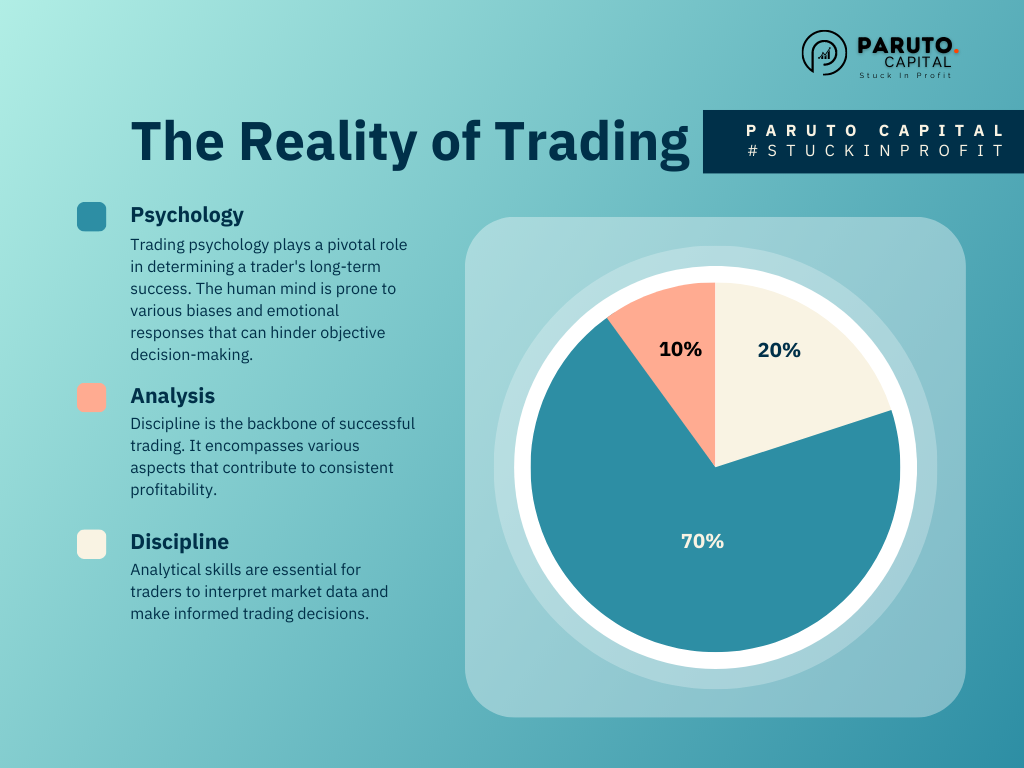Emotional decision-making can lead to impulsive and irrational trading choices. For example, let’s say you have a losing trade, and fear sets in, causing you to panic and exit the trade prematurely, missing out on potential profits. On the other hand, greed might prompt you to hold onto a winning trade for too long, hoping for even higher gains, only to see the market reverse and erase your profits. To avoid this, practice self-control and stick to your trading plan, which should be based on logical analysis rather than emotions.
Lack of Risk Management:
Neglecting risk management exposes you to significant financial risks. For instance, if you do not implement stop-loss orders, a sudden market downturn can lead to substantial losses as you hold onto losing positions. Similarly, if you risk an excessively large portion of your capital on a single trade, a few unfavorable trades can wipe out a significant portion of your account. By setting appropriate stop-loss orders, managing position sizes, and diversifying your trades, you protect yourself from catastrophic losses and preserve your capital.
Here is a way to learn more about risk management.
Overtrading:
Overtrading occurs when you excessively engage in trading without proper analysis or justification. For example, if you start making trades simply because you are bored or restless, without a valid reason based on your strategy, you are likely overtrading. The desire for constant action can lead to poor decision-making and increased transaction costs, eating into your overall profitability. Instead, focus on identifying high-quality trade setups and exercising patience, waiting for the right opportunities that align with your strategy.
Chasing Hot Tips and Rumors:
Chasing hot tips or acting on rumors can be a dangerous game. For instance, suppose you hear a rumor about a certain company’s stock skyrocketing in the near future. Without verifying the information or conducting your own analysis, you hastily enter the trade based solely on the rumor. However, the rumor turns out to be false, and the stock plummets, resulting in substantial losses. To avoid such scenarios, always verify the information from credible sources, conduct thorough research, and base your trading decisions on your own analysis rather than relying on hearsay.
Failure to Adapt and Learn:
The financial markets are dynamic, and successful traders need to adapt their strategies and techniques. For example, failing to adapt to new market conditions, such as changing trends or the impact of economic events, can lead to poor performance. Similarly, if you disregard the opportunity to learn new trading methods or technologies, you may miss out on potential advantages. Stay updated with market trends, engage in continuous learning, and be open to incorporating new strategies and tools into your trading approach. This adaptability will help you stay ahead in an ever-changing trading environment.
By avoiding emotional decision-making, implementing effective risk management, avoiding overtrading, disregarding hot tips, and embracing adaptation and learning, you can increase your chances of becoming a successful trader. These examples illustrate the potential consequences of these pitfalls and emphasize the importance of discipline, research, and continuous improvement in your trading journ



